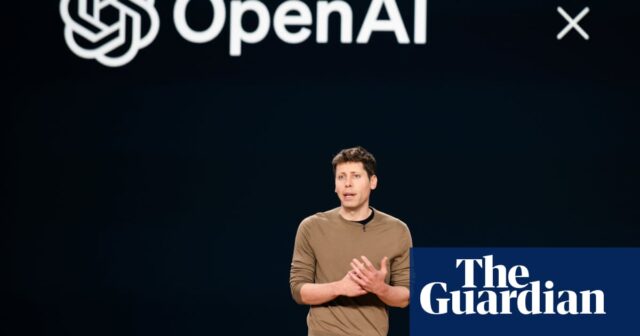Anyone in the US can now use OpenAI’s artificial intelligence video generator, Sora, which the company announced on Monday would become publicly available. OpenAI first presented Sora in February, but it was only accessible to select artists, film-makers and safety testers. At multiple points on Monday, though, OpenAI’s website did not allow for new sign-ups for Sora, citing heavy traffic.
Sora is known as a text-to-video generator, a tool that can create AI video clips based on a user’s written prompts. An example on OpenAI’s website has the prompt of “a wide, serene shot of a family of woolly mammoths in an open desert”. Its video shows a group of three of the extinct creatures slowly walking through sand dunes.
“We hope this early version of Sora will enable people everywhere to explore new forms of creativity, tell their stories, and push the boundaries of what’s possible with video storytelling,” OpenAI wrote in a blog post.
OpenAI is known for its popular chatbot ChatGPT, but it has been branching into other forms of generative AI. It is working on a voice-cloning tool and has integrated an image generation tool, Dall-E, into ChatGPT’s functions. The Microsoft-backed company leads the burgeoning AI market and is now valued at nearly $160bn.
Before today’s release of Sora, OpenAI let the tech reviewer Marques Brownlee test the tool. He said the results were “horrifying and inspiring at the same time”. Brownlee said Sora did well with landscapes and stylistic effects but that it struggled to realistically depict basic physics. Some film-makers who were also given a preview said the tool produced strange visual defects.
It is understood that OpenAI is still working through compliance issues with the Online Safety Act in the UK and the Digital Services Act and GDPR in the EU.
Two weeks ago, the company suspended any access to the tool when a group of artists created a backdoor that would allow anyone to use it. In a statement posted to the AI community site Hugging Face, they accused OpenAI of “art washing” a product that would steal the livelihood of artists like them. The “Sora PR Puppets”, as they dubbed themselves, said the company was trying to spin a positive narrative for its product by associating with creative people.
While generative AI has improved considerably over the past year, it is still prone to hallucinations, or incorrect responses, and plagiarism. AI image generators also often produce unrealistic images, such as people with several arms or misplaced facial features.
Critics warn that this type of AI video technology could be misused by bad actors for disinformation, scams and deepfakes. There have already been deepfake videos of the Ukrainian president, Volodymyr Zelenskyy, supposedly calling for a ceasefire and of Kamala Harris supposedly describing herself as “the ultimate diversity hire”.
after newsletter promotion
OpenAI said in its blogpost that it would initially limit uploads of specific people and that it will block content with nudity. The company said that it was additionally “blocking particularly damaging forms of abuse, such as child sexual abuse materials and sexual deepfakes”.
Sora will be available to users who already subscribe and pay for OpenAI’s tools. People in the US and “most countries internationally” will have access to the tool, but it will not be available in the UK or Europe due to copyright issues.






